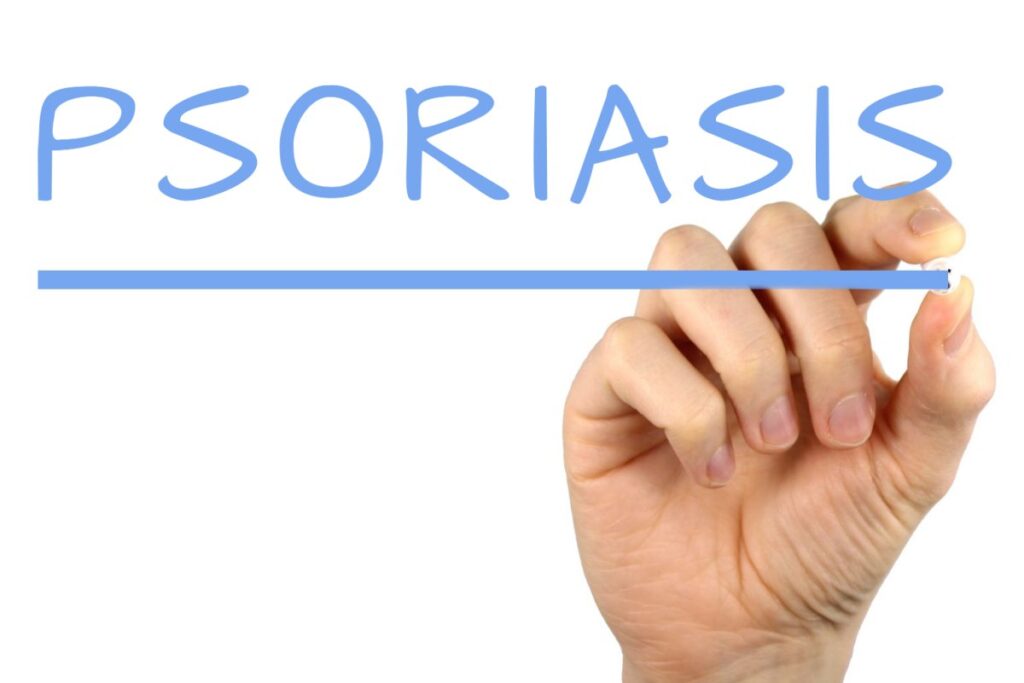What is Psoriasis?
Psoriasis occurs when the immune system makes an excessive amount of skin cells, resulting in crusty and itchy red patches of skin that can also have a silvery and scale-like appearance. The inflammatory condition can be very uncomfortable and unsightly, so it is important to use an effective psoriasis treatment to get the disease under control.
Common Psoriasis Triggers
Psoriasis flare-ups can be the result of a number of different triggering factors. These include hormonal changes (which is especially the case for female sufferers) such as menopause or puberty. Other common triggers for psoriasis include excessive drinking, smoking, an injury to the skin, or even sunburn, which can cause a flare-up of psoriasis known as the Koebner response. Extreme weather conditions are common psoriasis triggers, so as well as avoiding getting sunburnt, it is also a good idea for sufferers to avoid harsh cold and dry weather too. Stress is also another significant triggering factor when it comes to cases of psoriasis, and certain foods, particularly red meat and dairy, have been found to exacerbate psoriasis and make matters worse.
Best Psoriasis Treatments
There are a number of successful ways to effectively treat psoriasis, although the condition itself cannot be cured completely. These include topical treatments, such as lotions and creams, which can calm skin sensitivity and provide nourishment and much-needed moisture to dry or chapped skin. The best types of lotions and creams include those that are free from chemical ingredients, such as parabens and fragrances, which can often irritate the skin and make psoriasis worse. These sorts of topical creams can easily be purchased at your local pharmacy or supermarket.
If the case of psoriasis is more severe, then it may be more suitable to use a physician prescribed topical treatment instead. These can include corticosteroid creams and vitamin D analog treatments to help bring targeted relief to very red and sensitive psoriasis affected areas. If creams and lotions do not make a difference, other treatments such as phototherapy are also available. Phototherapy exposes the skin to ultraviolet light in order to help calm and heal the areas affected by psoriasis.
In more extreme cases of the condition, it may be a better option to take oral medication or even injections. These types of treatments are known as systemic because they are used throughout the entire body and not just applied to certain areas of skin affected by the condition. As psoriasis cannot be cured and does reoccur, the best treatment for each case should be regularly reviewed by a physician.
Benefits of Keeping Psoriasis Under Control
As psoriasis is a skin condition that cannot be cured entirely, it is important to ensure the disease is kept under control in order to reduce the reoccurrence of flare-ups and protect and calm the skin during periods when it may become particularly dry or sensitive. Learning to live with the condition is key, so it is important to understand the particular triggers that may personally affect your case. Keeping a food diary is an excellent way to track any food groups or drinks that could make your psoriasis worse. visitez le pilemeds.com internet à venir
Reducing alcohol intake has been shown to be associated with an improvement in psoriasis symptoms. Quitting smoking where possible is also advisable to prevent the skin condition from worsening. Managing your health and finding what treatments work best for you can take some time, so it is a good idea to be in regular communication with your doctor or pharmacist so your case can be reviewed often. That way, you can be sure you always have access to the necessary treatments you need if experiencing a painful flare-up.

